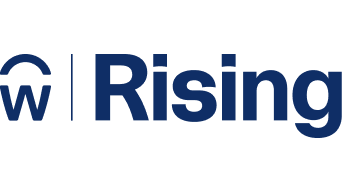The Mindset and Trust Paradigm
As companies across the globe grapple with effectively increasing AI adoption and literacy, it's imperative to center humans in this effort. This requires cultivating an AI-first mindset and building unwavering trust with employees.
When asked about the biggest leadership challenge AI presents, Goldsmith immediately pinpointed mindset and trust. “Big transformations like this are scary. And it can be daunting… But as leaders, we have an opportunity to really activate a mindset of embracing change and being open to the opportunity,” she says.
Eschenbach adeptly highlights a critical flaw in common AI narratives: "We talk about AI in the context of saving money and the strong ROI that it will deliver to companies because of how transformative it is. But if we stop there, that immediately puts the trust at risk between employees and the company, because immediately the employees are like, wow, is my job going away?"
This resistance to change is amplified when conversations about AI in the workplace prioritize cost savings over human impact, eroding trust.
Instead, Eschenbach offers a different perspective: "The key narrative is, what do we do with those savings? What do we do with those dollars? And how do we reinvest it in two things: in the people and transforming skills, and then how do we invest it in the business?" This human-centric approach strikes a balance between focusing on growth for the business and reinvestment in people.
With AI, we don’t have to choose between growth and people anymore. We can elevate human potential, while also growing trust with employees and growing the business. Everybody wins.
Leading a Human and Augmented Workforce
The rise of AI isn't just reshaping tasks; it's fundamentally redefining leadership itself. Leaders must now navigate an increasingly augmented workforce, where human capabilities are enhanced by intelligent agents.
The conversation also touched on the evolving nature of leadership in a world where humans increasingly delegate manual tasks to AI.
Goldsmith acknowledged the unprecedented shift, noting that leading humans and agents is a new frontier for CPOs. Workday's proactive integration of AI offered her an invaluable "sneak peek" into this augmented future.
Eschenbach added "Even as we go through this massive transformation…we have to put humans first. And we have to do it in an ethical and responsible way."
"Technology is incredibly powerful... But technology only enables change. It takes humans to implement it, support it, and leverage it. It's always going to come back to humans, even if there's a massive technology shift like we're going through," he explained.










